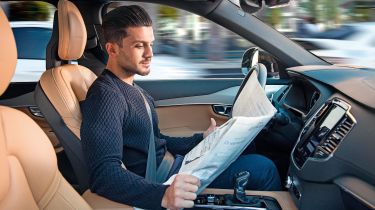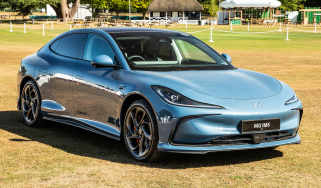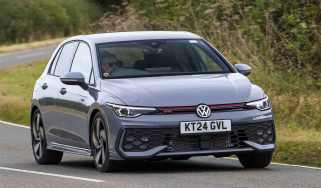Three in four people think autonomous cars won’t reduce accidents
Only 27 per cent of Britons believe driverless vehicles will reduce accidents, despite 90 per cent of crashes being caused by human error

Three out of four people do not believe driverless cars will reduce the number of accidents on UK roads, despite human error being the cause of 90 per cent of crashes.
Just 27 per cent of 2,000 adults surveyed by insurance company AXA said they thought autonomous vehicles would lower the UK’s accident rate.
Respondents were also asked about some of the other potential benefits of driverless cars, but only a third said the vehicles would be better for the environment, while a mere quarter believed they would improve safety for pedestrians.
The research follows a Euro NCAP and Thatcham study in October finding 71 per cent of drivers believe fully autonomous cars are already on the market as a result of confusion over the difference between driver assistance and autonomy.
When AXA asked its survey respondents to identify “a definition that best described a driverless car”, only a third selected the description of a Level 5 fully autonomous vehicle – “A vehicle that can make informed decisions and control itself and does not require a driver to take control in any situation as it is able to adapt to its surroundings.”
One in ten chose: “A vehicle that has one form of autonomous technology, such as steering, speed or braking control,” which is the definition for a Level 1 autonomous car offering only limited driver assistance.
Driver assistance features such as cruise control, lane-keep assist and self-parking are readily available on most modern cars. However, when asked, a quarter of respondents said they weren’t aware of cruise control and three quarters said they didn’t think they’d ever used it.
• Autonomous cars could be programmed to break driving laws
That said, 61 per cent thought cruise control has already improved road safety, with 82 and 71 per cent feeling the same way about lane-keep assist and self-parking respectively. Furthermore, 84 per cent believed autonomous emergency braking will improve road safety if it becomes mandatory.
| Level | Description | Definition |
| 0 | No automation | Fully controlled by human driver. |
| 1 | Driver assistance | A vehicle that has one form of autonomous technology, such as steering, speed or braking control. |
| 2 | Partial automation | A vehicle that can control both steering and acceleration/deceleration but requires a driver in control at all times. |
| 3 | Conditional automation | A vehicle that can make informed decisions and control itself, however requires the driver to take control when it is unable to execute a task, or the system fails. |
| 4 | High automation | A vehicle that can make informed decisions and control itself and does not require the driver to take control even when it is unable to execute a task or the system fails. |
| 5 | Full automation | A vehicle that can make informed decisions and control itself and does not require a driver to take control in any situation as it is able to adapt to its surroundings. |
AXA UK’s technical director David Williams said autonomous cars will “revolutionise transport for the better”, but admitted that “new technology can be confusing and even lead to scepticism”.
He added that there’s a need to “educate motorists on the benefits of autonomous vehicles”.
Do you think autonomous cars will reduce accidents? Let us know in the comments...
Find a car with the experts



